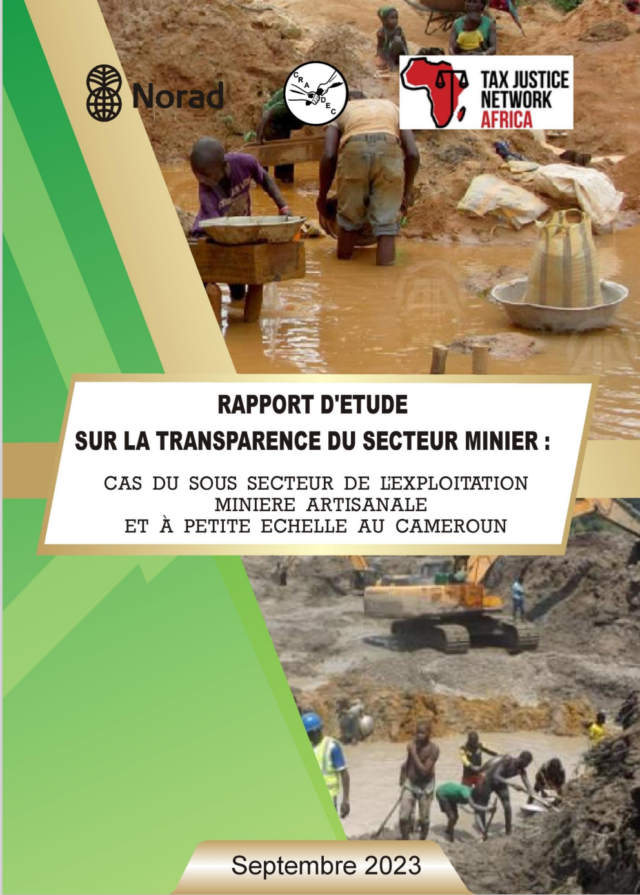In view of the inadequacies and shortcomings observed in the small-scale mining sub-sector in Cameroon, the African Regional Centre for Endogenous and Community-based Development (Centre Régional Africain pour le Développement Endogène et Communautaire – CRADEC) has made recommendations to various stakeholders to improve transparency in the sub-sector. These recommendations were addressed to the Government, Members of Parliament, artisanal mining operators, civil society organisations and the international bodies of the Extractive Industries Transparency Initiative (EITI).
The African Regional Centre for Endogenous and Community Development (Centre Régional Africain pour le Développement Endogène et Communautaire – CRADEC) would like the Government, through its specialised institutions, in particular the Cameroon National Mining Company (Société nationale des Mines du Cameroun – SONAMINES), to produce guides on mining handicrafts for use. It also suggests that SONAMINES, the Permanent National Secretariat of the Kimberley Process (Secrétariat National Permanent du Processus de Kimberley – SNPPK), the sub-Directorate of the Mining Cadastre and the Regional Delegations of the Ministry in charge of mines equip themselves with an electronic register of artisanal and semi-mechanised artisanal mining authorisations. In addition to these aspects, it also recommends the signing and publication of the application decrees for the 2016 Mining Code and the 2018 Transparency Code, in particular the provisions applicable to EMAPE (disclosure of mining authorisations, declaration of beneficial owners and beneficiaries, register of licences, etc.). CRADEC also recommends that the Cameroonian government introduce a specific policy for monitoring artisanal and small-scale mining of transitional minerals.
As far as parliamentarians are concerned, CRADEC’s main recommendation is to monitor the government’s actions in organising and monitoring EMAPE. It considers that Parliament should initiate, among other things, control missions at SONAMINES, audits of the procedures for granting artisanal and semi-mechanised mining permits, and a control mission at the sub-directorate of the mining cadastre with regard to the keeping of licence registers. The report also recommends that Members of Parliament pass laws ensuring that the provisions relating to EITI requirements are taken into account.
The report calls on artisanal mining operators to show patriotism and comply with the requirements of the Financial Action Task Force (FATF) and the EITI Standard on disclosure of information on the owners and beneficial owners of mining licences.
The report’s conclusions recommend that civil society organisations step up their monitoring of EMAPE, taking into account the requirements of the EITI 2023 Standard. To this end, they suggest that civil society should continue the awareness-raising actions already initiated by them aimed at organising artisanal miners around cooperatives. They also note the need to strengthen their capacity on the transparency of EMAPEs in order to guarantee in the future a satisfactory level of commitment from their colleagues in the context of monitoring the implementation of the EITI.
The EITI International Bodies are recommended to strengthen the capacities of the Multi-stakeholder Groups (MSGs) on the coverage of artisanal and small-scale mining (ASM) in EITI reporting and to ensure that validations of countries with a high propensity for mining rather than oil take into account the weight of the ASM sector in their economy.
Tiba Kassamse OUEDRAOGO
#Mines_Actu_Burkina










